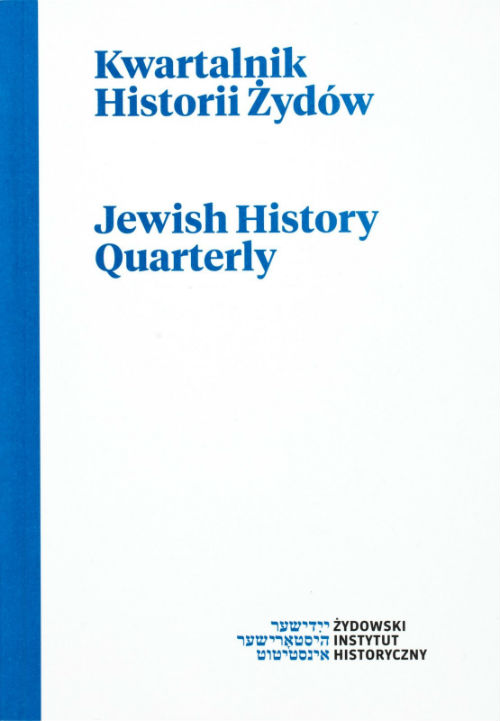Nieznany dziennik z getta warszawskiego
Unknown Diary from Warsaw Ghetto
Author(s): Michał Czajka, Tadeusz EpszteinSubject(s): History
Published by: Żydowski Instytut Historyczny
Keywords: Leon Berenson; Warsaw ghetto; diary
Summary/Abstract: A fragment of an anonymous diary from the time of the German occupation of Poland, found immediately after the war in the rubble of Warsaw ghetto, has been kept in the Archives of the Jewish Historical Institute in Warsaw. It was written in the ghetto at the end of March and beginning of April 1941. Its author, the advocate Leon Berenson, was born in Warsaw in 1882. He graduated in law in Paris and in the years 1905-1908 was a defense counsel in many political trials. In the years 1920-1923 he worked for the Polish diplomatic service. From 1923 he had his private law practice in Warsaw. During the 1920s and 1930s he took part in many political trials; he was appreciated as a talented speaker. In the autumn of 1931 he took up the defense of Polish Socialist Party politicians, accused in the so-called Brześć trial. He cooperated with the Democratic Club and the Democratic Party. When the ghetto was established, Berenson had to move to the Jewish quarter. Inside the ghetto he lived in Ogrodowa street. He engaged in social work, continued to work for Adam Czerniakow, whom he contacted even before the ghetto was established. He was said to be the author of a program for turning around the ghetto administration. He also maintained contacts with Emanuel Ringelblum, who took a positive view of Berenson and persuaded him to collaborate with Oneg Shabat. Berenson reportedly promised to deliver his diary to Ringelblum, but he suddenly died on 22 April 1941 at night. Ringelblum noted that Berenson was smuggling notebooks containing his diary to the so-called Aryan side. This was likely true as only the last notebooks survived. The absence of earlier sections can be explained by the fact that they were passed to the Aryan side and were likely destroyed during the Warsaw Rising. The preserved fragment of the diary is a valuable account from the Warsaw ghetto. The author was a keen observer of the present, both that which he could see out his window and the more distant present, known from the press and personal accounts. He took a critical view of the political realities of pre-war Poland but just as fiercely attacked the abuses of the Jewish administration of the ghetto. He also made interesting attempts at predicting Poland’s situation once the war is over (among others, a variant involving the domination of the Soviets, who “will bring a new social system with their bayonets”). In this case his guesses of what was to come were pretty accurate. The diary makes it possible to determine the exact dates of Adam Czerniakow’s second detention, from the night of 1 April to 7 April 1941. The condition in which the manuscript has been preserved precludes any comprehensive editing thereof as all that is left of some pages of the document are small scraps that do not even make it possible to grasp the general meaning of the text. We left those passages wherever it was possible to decipher or reconstruct even tiny bits of text.
Journal: Kwartalnik Historii Żydów
- Issue Year: 245/2013
- Issue No: 01
- Page Range: 32-67
- Page Count: 36
- Language: Polish

